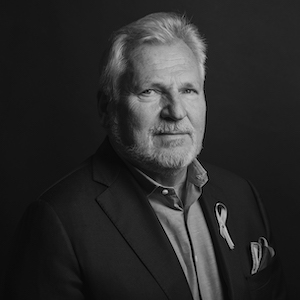
Meet our speaker - Aleksander Kwaśniewski

Aleksander Kwaśniewski

BIO
He was born on November 15, 1954, in Białogard (Koszalin Voivodeship, currently West Pomeranian Voivodeship). His wife is Jolanta, nee Konty. They have a daughter named Aleksandra (born in 1981). He studied (1973-1977) at the Faculty of Transport Economics (foreign trade) at the University of Gdańsk.
He was a student activist until 1982, serving as the chairman of the University Council of the Independent Students’ Association (SZSP) (1976-1977), vice-chairman of the Provincial Board in Gdańsk (1977-1979), and a member of the central authorities of SZSP (1977-1982). He was the Editor-in-Chief of the student weekly “ITD” (November 1981-February 1984), Editor-in-Chief of the newspaper “Sztandar Młodych” (1984-1985), and co-founder of the first magazine dedicated to computerization, “Bajtek” (1985).
He co-chaired, alongside Tadeusz Mazowiecki and Romuald Sosnowski, the Team for Trade Union Pluralism. He was a member of the Polish United Workers’ Party (PZPR) (1977-1990). He co-founded the Social Democracy of the Republic of Poland (January-February 1990) and served as its first chairman (until December 1995). He was a co-organizer of the Democratic Left Alliance (1991).
He was also active in sports, being involved in the Academic Sports Union (1975-1979) and the Polish Olympic Committee, where he served as Chairman (1988-1991). He was honored with the Golden Olympic Order by the International Olympic Committee (1998), the Golden Order of Merit by the International Association of Athletics Federations (IAAF) (1999), and the Order of Merit by the European Olympic Committees (EOC) (2000).
He was elected as a Member of the Polish Parliament from the Warsaw constituency (in the 1993 elections, he received the highest number of votes – 148,553). He chaired the Parliamentary Club of the Democratic Left Alliance in the first and second terms (1991-1995). He was a member of the Committee on Foreign Affairs and chaired the Constitutional Committee of the National Assembly (November 1993 – November 1995).
He won the presidential elections: first in 1995 (campaign slogans: “Let’s Choose the Future” and “United Poland”) – with 51.7% of the votes against 48.3% for Lech Wałęsa, and then in 2000 (campaign slogan “Home for All – Poland”) – with 53.9% of the votes in the first round.
He was sworn in as the President of the Republic of Poland on December 23, 1995. On the same day, he took the oath as the Commander-in-Chief of the Armed Forces in the 1st Fighter Aviation Regiment “Warsaw” in Mińsk Mazowiecki. He was re-sworn before the National Assembly for a second term on December 23, 2000. On the same day, aboard the museum ship “Błyskawica” in Gdynia, he assumed command over the Polish Armed Forces.
He co-authored the project and participated in the referendum campaign for the adoption of the Constitution of the Third Republic of Poland, which he signed on July 16, 1997. At the United Nations Forum, he proposed a Convention on Combating Organized Crime (1996). He actively worked for Poland’s NATO membership.
He chaired the Polish delegation at the summits in Madrid (1997) and Washington (1999). On February 26, 1999, he signed documents ratifying Poland’s NATO membership (in a joint ceremony with the President of the Czech Republic, Václav Havel). He actively worked to expand the Alliance to seven more countries (NATO summit in Prague 2002) and continued the policy of “open doors”.
At his initiative, an international conference of leaders of Central, Eastern, and Southeastern European countries was held in Warsaw in 2001, under the anti-terrorism coalition, dedicated to strengthening regional efforts in combating global terrorism.
He advocated for Poland’s accession to the European Union, which was finally achieved on May 1, 2004. He initiated and actively participated in a pro-European campaign preceding the nationwide referendum, in which 77% of Polish voters supported Poland’s accession to the EU (June 2003). Under his leadership, a public debate titled “A Strong Poland in a Strong Europe” has been held since February 2004 in the Presidential Palace, bringing together politicians, intellectuals, scientists, NGOs, and local government representatives.
He was a spokesman for regional cooperation in Central and Eastern Europe. He hosted a meeting of presidents from this region in Łańcut (1996) and actively participated in such meetings in Portorož (1997), Levoča (1998), and Lviv (1999). Together with the President of Lithuania, he initiated a meeting on “Coexistence of Nations and Good Neighborly Relations as a Guarantee of Security and Stability in Europe” in Vilnius (1997) and its continuation – a meeting on “Baltic-Black Sea Cooperation: Towards a Unified Europe of the 21st Century Without Divisions” in Yalta (1999).
He was the creator of the Riga Initiative (2002) – a platform for cooperation among countries in our region of Europe, creating conditions for the enlargement of NATO and the European Union. Until November 2013, President Aleksander Kwaśniewski, as part of the European Parliament’s mission to Ukraine, monitored the case of the arrest of Yulia Tymoshenko, Yuriy Lutsenko, and Valeriya Ivashchenko.
